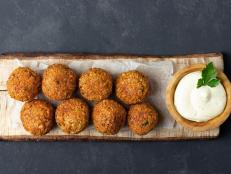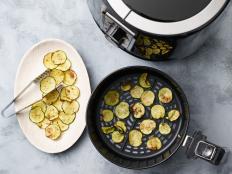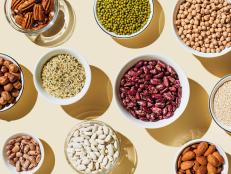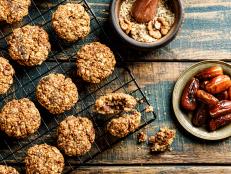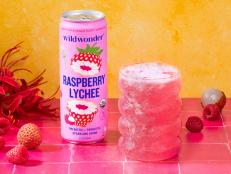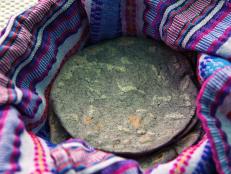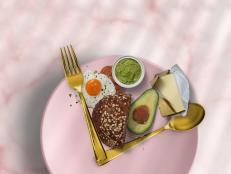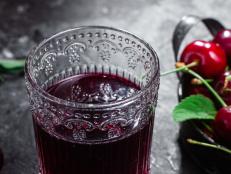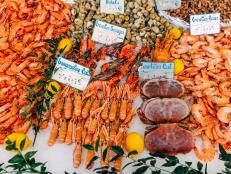11 Healthy Foods Men Should Eat More Often
And easy ways to add them into your diet.

virusowy, virusowy
There's a good chance you've heard a lot of hype about how you should be eating more protein: "Eat protein to burn fat." In reality, most men are getting plenty of protein. But there are actually several nutrients men aren't eating enough of.
According to the latest Dietary Guidelines, most men don't get enough vitamin D, potassium and dietary fiber; in addition, men likely need more magnesium and omega-3 fats, according to the National Institutes of Health.
Here's what men need every day:
- Vitamin D — 600 IU (some research suggests it might be more)
- Potassium — At least 3,400 milligrams, probably 4,500 milligrams
- Dietary fiber — 30 to 38 grams
- Magnesium — 400 milligrams
- Omega-3 fatty acids — 1.6 grams ALA (you also need DHA and EPA omega-3s, but no recommendation has been set for them)
Here are 11 foods you can eat to easily bulk up on the nutrients you really need.
How hard can it be? Chop a few veggies and you've got a special sauce to go on anything from fish to chips. Start with fresh grape tomatoes or canned tomatoes. Add more of whatever veggies you've got: corn (frozen is fine), cucumbers, olives and/or black beans, with chiles if you like it spicy. Any salsa you end up with will be rich in potassium, magnesium and fiber.
Canned Tuna
No need to search for the can opener; just rip open one of the portable pouches. Eat the tuna plain or mixed into pasta sauce, or make a sandwich spread by mixing it with plain Greek yogurt or hummus. Enjoy your omega-3s, vitamin D and potassium.
Hemp Seeds
Not a fan of fish? A serving of hemp seeds has over 100% of your ALA omega-3 needs (2.5 grams) covered, as well as nearly half your magnesium (197 milligrams), plus a bonus of 10 grams of protein. Sprinkle hemp seeds on yogurt, salad or breakfast cereal.
Cabbage
A good source of vitamin C and fiber, cabbage can become sauerkraut through the "magic" of fermentation. Then it's an excellent source of potassium and friendly bacteria. Eat the crunchy veg fresh or put refrigerated kraut on everything from sandwiches to eggs.
Eggs (as a Vehicle Food)
Most men get plenty of eggs in their diet, but they don't get enough leafy dark greens like Swiss chard. (Yes, greens are so important that nutritionists collect data just on them.) So every single time you make scrambled eggs, add a big handful of mild Swiss chard, arugula or even fresh herbs like basil or mint, and you'll be upping your potassium, magnesium and fiber, plus getting vitamin D from the eggs.
Canned Tomatoes
No shame in canned. Canned tomatoes contain significantly higher quantities of the nutrient lycopene than fresh tomatoes do. Lycopene acts as an internal sunscreen, and can lower heart disease and cancer rates. Add a second can of tomatoes to any recipe that calls for one can, for more potassium, magnesium and fiber.
Lentils
Yes, there are canned lentils, but cooking lentils from scratch takes only about 25 minutes. And a bag of lentils costs only about $2 for over 10 servings. Scoop up a half-cup serving to get about half your daily fiber, along with potassium and magnesium.
Grapefruit
Think you don't like this super fruit? Try it bruleed. Grapefruit are packed with potassium, calcium, vitamin A and powerful antioxidants. The easiest way to eat one to peel it like you would an orange.
Frozen Red Raspberries
They contain more fiber than any other berry, with 9 grams per cup, and are one of the lowest in natural sugar. Frozen red raspberries may even contain more nutrients than fresh, because they are frozen at the peak of ripeness to lock in nutrition. They're the ultimate in convenience; add them to plain yogurt, salads and smoothies.
Kefir
Vitamin D-containing kefir also contains 10 or more cultures or probiotic strains, compared with yogurt, which has only about four to seven. Kefir also contains yeast species for even more gut-health benefits.
Sprouted Grains
Compared with refined grains, whole grains have more of the original plant matter intact (the bran, the germ and the endosperm), which means they provide more dietary fiber, vitamins and minerals. If you've been avoiding whole grains because they don't always love your stomach, try sprouted grains. Sprouted grain foods may be easier to digest.
Serena Ball, MS, RD is a registered dietitian nutritionist, food writer and recipe developer. She blogs at TeaspoonOfSpice.com and is the author of the best-selling The 30-Minute Mediterranean Diet Cookbook. Follow her @TspCurry on Twitter and Instagram.
Related Stories:


























